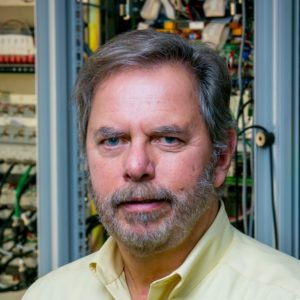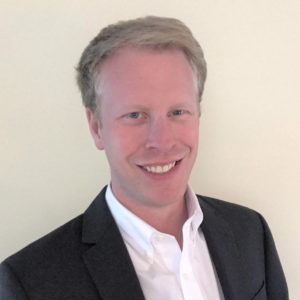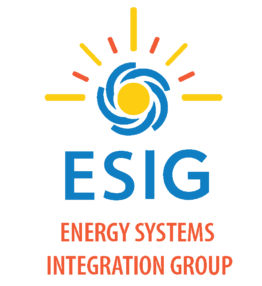
- This event has passed.
G-PST/ESIG Webinar Series: Going the Distance: Moving AC Power from Large Inverter-Based Generation Pockets to Load Centers
March 10, 2021 @ 4:00 pm - 5:00 pm EST

Going the Distance: Moving AC Power from Large Inverter-Based Generation Pockets to Load Centers
Featured Speakers: Nick Miller, Principal, HickoryLedge LLC & Matthew Richwine, Founding Partner, Telos Energy

Nick Miller
Nick Miller recently retired from GE after 3/8 century of experience and research on bulk power systems. He has lectured on Wind and Solar Power integration to governments and institutions in more than three dozen countries. He currently provides consulting expertise to a variety of private and public institutions on topics of grid integration of renewable resources. He holds twenty US patents for wind, solar, and grid technologies, is a Fellow of IEEE, a NY PE, active in CIGRE and IEC, has authored over 150 technical papers and articles, and is the recipient of several power industry awards.
Matthew Richwine is a founding partner of Telos Energy and is passionate about power systems engineering, power electronic controls, and system stability. For the past ten years, he has been designing, testing, and analyzing thermal and renewable power generation equipment and studying the stability of power systems ranging from tens of megawatts to tens of gigawatts.
Moderator: Charlie Smith, Executive Director, ESIG
Registration Cost: FREE

Matthew Richwine
Q&A Session: We will be using the slido platform for Q&A. Please submit your questions and follow-along during the event at this link.
Webinar Abstract: Getting the power from large areas of high-quality wind and solar resources across AC transmission to load centers is one of the most pressing and practical challenges facing major interconnections today. This webinar covers the stability challenges associated with long-distance, high-voltage transmission by examining the performance of emerging grid-forming inverter technology relative to grid-following inverter technology and synchronous machine technology and the impact of non-wires transmission system reinforcements.
About G-PST Consortium
The chief executive officers of National Grid Electricity System Operator UK, California Independent System Operator (CAISO), Electric Reliability Council of Texas, Australia Energy Market Operator (AEMO), Ireland’s System Operator (EirGrid), and Denmark’s System Operator (Energinet) are champions in developing the consortium mission and activities. Importantly, these system operators are leading a Research Agenda Group to identify common, cutting-edge research questions that can inform large- scale national research and development investments. Relevant results and lessons from this process will be broadly shared for learning across all countries. The Consortium is also partnering with around 10 emerging economy and developing country system operators from Africa, Asia, Latin America and Eastern Europe who will also guide the G-PST vision and collaborate with the Consortium to advance power system transformation with a focus on technical collaboration, peer learning and exchange, and workforce development to support local PST priorities.
A core team, including the Energy Systems Integration Group (ESIG), Imperial College London, Council of Scientific and Industrial Research (CSIR), Fraunhofer Cluster of Excellence for Integrated Energy Systems, National Renewable Energy Laboratory, Latin American Energy Organization (OLADE), IEEE, Electric Power Research Institute (EPRI), Commonwealth Scientific and Industrial Research Organization (CSIRO), the Danish Technical University (DTU), and ASEAN Center for Energy, is actively developing the consortium and will be engaged in implementation of technical work as well as coordinating specific pillars.
International agencies and multilateral and regional development banks, including World Bank, United States Agency for International Development (USAID), German Agency for International Cooperation (GIZ), International Energy Agency (IEA), Asian Development Bank (ADB), European Bank for Reconstruction and Development (EBRD) and others are serving as key implementing partners to ensure the consortium complements and reinforces existing programs.
For more information on the G-PST visit https://globalpst.org/.

